595 tulosta löytyi
Skip results of view Uutiset
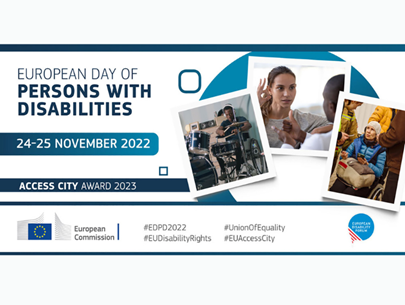
Tomorrow, 3 December, marks the 30 th annual International Day of Persons with Disabilities (IDPD), initiated by the United Nations (UN) in 1992 to promote the rights, well-being and development of people with disabilities in society. To raise awareness about the daily difficulties faced by the 87 million Europeans with disabilities , several initiatives are also undertaken around Europe. The 2022 edition of the European Day of Persons with Disabilities conference took place in Brussels on 24 and 25 November 2022. In partnership with the European Disability Forum, the European Commission
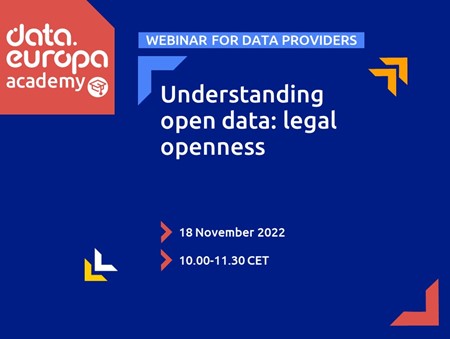
The webinar ‘Understanding open data: legal openness’ was held on 18 November 2022. This was the third webinar of the data.europa academy series dedicated to data providers and focused on what data openness entails from a legal perspective and how it can be optimally achieved. The goal of the webinar was not to provide purely theoretical legal training, but also to identify best practices and resources that data providers can use to achieve openness and to realise when openness cannot be achieved. In the first part of the webinar, Hans Graux, lawyer at Timelex , provided an introduction on how

The Interoperability Unit of the European Commission’s Directorate-General for Informatics (DIGIT) and the Czech Presidency of the Council of the EU will host the 2022 edition of SEMIC: Data Spaces in an Interoperable Europe on December 6. This year the conference will take place both in person, at the Square Meeting Centre in Brussels, and online. More information on how to participate either physically or remotely, can be found here. The conference will revolve around the implementation of data spaces. In particular, the conference will offer support in overcoming obstacles in implementing
The first report on ‘ The Use Case Observatory’ is now available on the data.europa.eu . This research tracks 30 open data reuse cases from 2022 to 2025 with the goal of assessing how open data creates impact, sharing the challenges and successes of reuse, and contributing to the debate on open data impact assessment methodology. The 30 use cases for the study were selected from over 600 reuse cases collected from the EU Open Data Maturity assessments, EU Datathon and data.europa.eu use case repository. They were grouped according to the four dimensions of open data impact, used also in the

Between 6 and 18 November 2022, the Government of the Arab Republic of Egypt hosted the 27 th session of the Conference of the Parties (COP 27) in Sharm El- Sheikh. At COP 27, countries came together towards achieving the world's collective climate goals as agreed upon under the Paris Agreement and the United Nations Framework Convention on Climate Change. Below some of the highlights of the conference in relation to data and its role in the fight against climate change. The Egyptian government launched its first Vulnerability Assessment Map, which reviews and displays climate-related
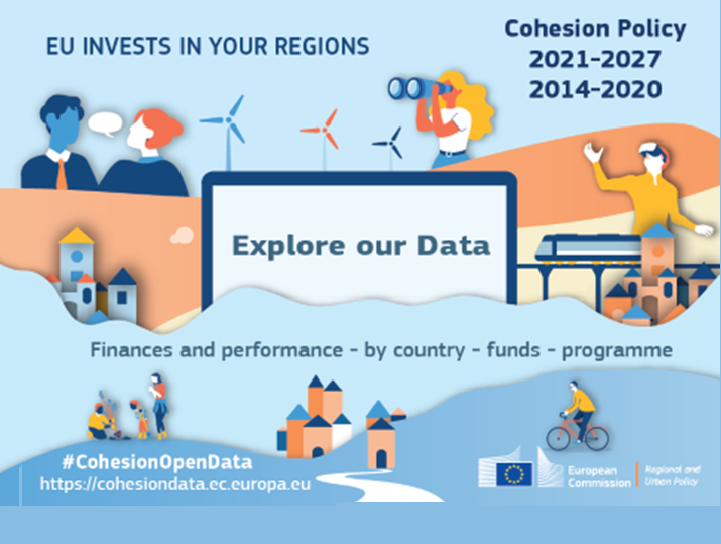
The Cohesion Open Data Platform by the European Commission presents aggregated information and promotes transparency on how funds are being used by the European Commission to support EU regions in their economic reforms. It provides open data on hundreds of national, regional and interregional programmes with detailed information on cohesion policy, finances (planned and implemented), EU payments made to the Member States and agreed targets. In the past (2014-2020), the platform has proven to be very valuable in promoting transparency regarding finances (budget and expenditure). This is why
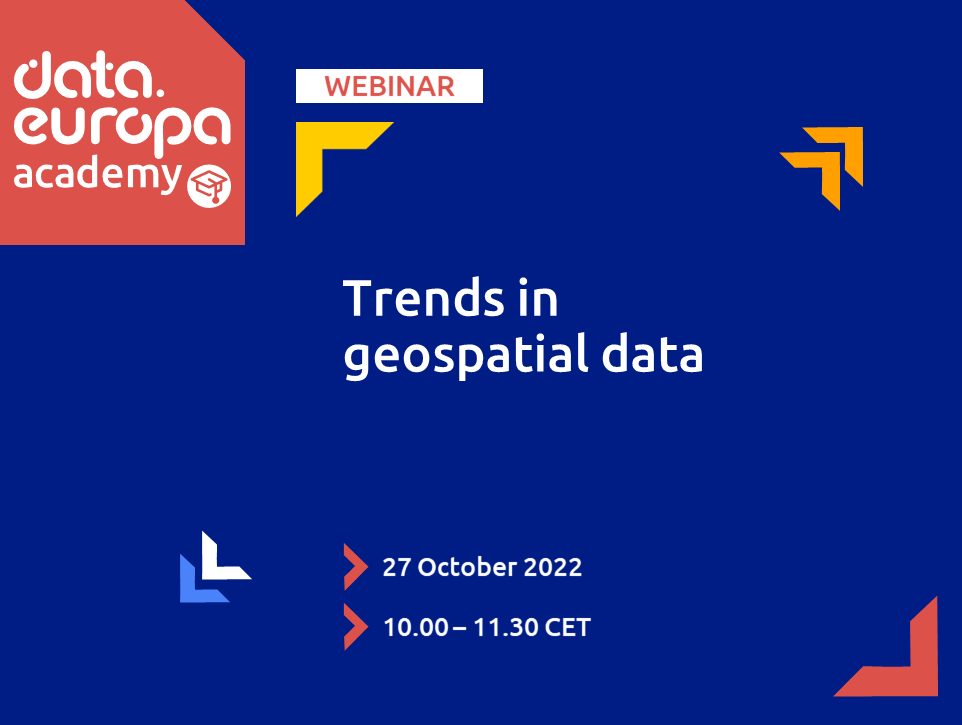
On 27 October 2022, the data.europa academy held a webinar on the topic ‘ Trends in Geospatial data `. The aim of the webinar was to investigate current emerging trends in the geospatial community and discuss which trends, standards, or ideas are most relevant today. This should eventually facilitate the identification of further opportunities for data.europa.eu. After a brainstorming session on current trends in geospatial community, the webinar went on to discuss two interesting topics for future of data.europa.eu, modernising Infrastructure for Spatial Information in Europe (INSPIRE) and

On 14 September 2022 , Ursula Von Der Leyen, President of the European Commission, announced in the annual State of the Union address , her intention to make 2023 the ´European Year of Skills’ to address the current skill shortage in the EU. Currently, in fact, more than three quarters of companies in the EU report difficulties in finding workers with the appropriate skill set. This is even truer when it comes to digital skills, with only 4 out of 10 adults and every third person who works in Europe lacking basic digital skills. Additionally, IT and security specialists are few and the female
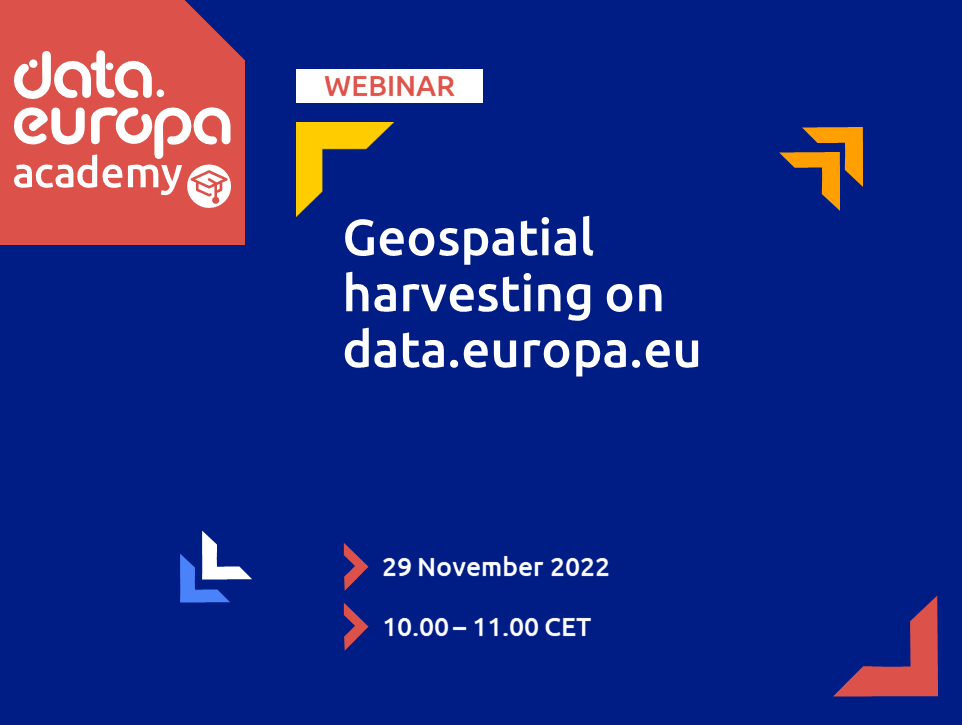
To explore the uncharted areas of the world, geospatial data needs to be harvested. But how does the process of geo-harvesting work? This is one of the many questions that will be addressed in the webinar ‘ Geospatial harvesting on data.europa.eu’ that will take place on 29 November at 10.00 – 11.00 CET. This webinar will introduce the geospatial data that can be found on data.europa.eu and explain the geo-harvesting process. The speakers - Jan van Zadelhoff and Antje Kügeler from con terra - will closely examine one geospatial dataset on data.europa.eu and explore the journey of its metadata
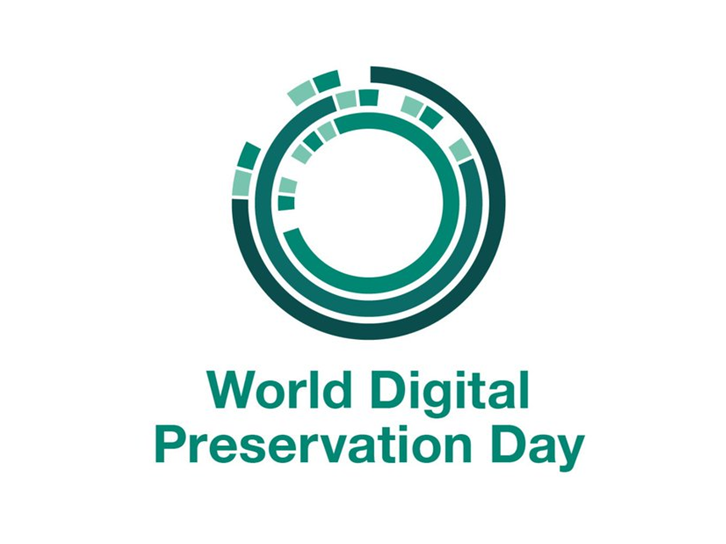
On 3 November 2022 it was World Digital Preservation Day (WDPD), an annual event hosted on the first Thursday of every November by the Digital Preservation Coalition (DPC). This is a registered company and charity established in 2002 as a collaboration between several agencies operating in the UK and Ireland, among which research institutes such as CERN and the University of London. The goal of WDPD is to celebrate and raise awareness at global level about all things digital preservation and showcase how Digital Preservation enables ‘digits to flourish’. With digital preservation is meant in
